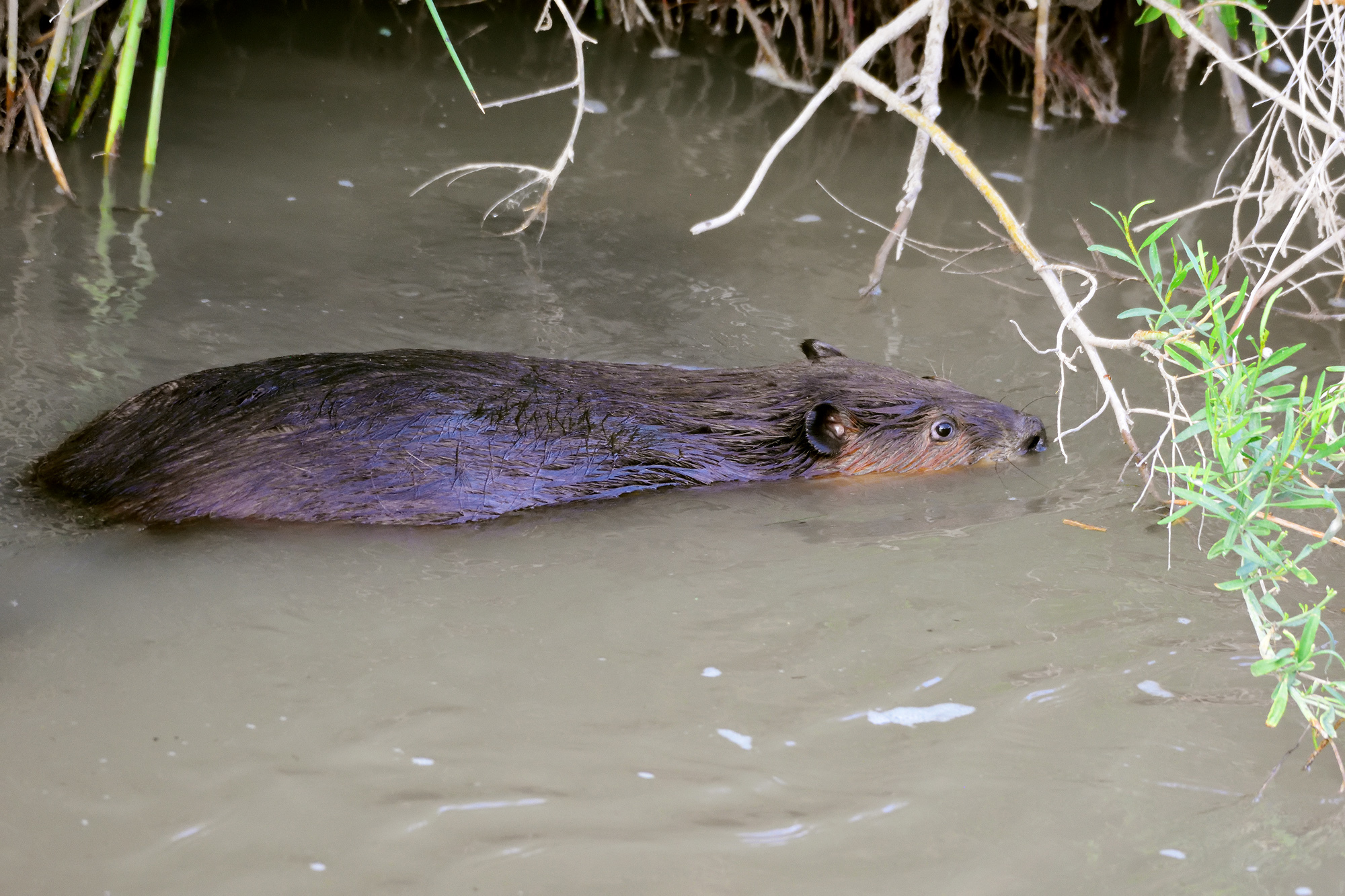
During the past decade the orangutan population has decreased by approximately 50 percent in the wild. This is primarily due to human activities including rainforest destruction for palm oil plantations. At present, 80 percent of orangutan habitat has been altered or lost. Photo by David Cook, Wikimedia Creative Commons.
Guest Blogger – Robert Hii
-The United Nations Biodiversity Conference (COP15) ended in Montreal, Canada, on 19 December 2022 with a landmark agreement to guide global action on nature through to 2030.
-In Europe, The European Commission welcomed the provisional political agreement just reached between the European Parliament and the Council on an EU Regulation on deforestation-free supply chains. Once adopted and applied, the new law will ensure that a set of key goods placed on the EU market will no longer contribute to deforestation and forest degradation in the EU and elsewhere in the world.
-In the US, A new bill under review in the United States is seeking to facilitate this global shift. The Fostering Overseas Rule of Law and Environmentally Sound Trade (FOREST) Act, introduced by US Sen. Brian Schatz (D-Hawai‘i) and US Reps. Earl Blumenauer (D-Ore.) and Brian Fitzpatrick (R-Penn.), seeks to outlaw commercial products linked to deforestation such as meat, soy, palm oil, cocoa, rubber, and wood pulp.

Palm oil has been and continues to be a major driver of deforestation of some of the world’s most biodiverse forests, destroying the habitat of already endangered species like the Orangutan, pygmy elephant and Sumatran rhino.
This growing movement by governments worldwide to better protect forests and biodiversity sounds a calming note amidst other gloomy predictions for nature.
Democratic congressman Earl Blumenauer, the author of the draft law, said the EU’s agreement had given the safeguard legislation new impetus as quoted by The Guardian.
“I’m very excited,” he said. “This momentum that is being built is very, very important. Our partnership with the EU has been critical. Our differences are relatively minor and this is an opportunity for us to close ranks and encourage greater leadership from the private sector that I don’t think has to fall victim to partisan crossfire.”
However, the enthusiasm of Congressman Blumenauer must be seen against the background of protests by developing countries.
“More than a dozen countries, including Indonesia, Malaysia, and Thailand, have severely criticized the European Union’s “deforestation and forest degradation and repealing regulation” at the World Trade Organization, accusing the EU for allegedly adopting “inherently punitive” protectionist measures against developing countries in agriculture.”
In a pre-emptive move against what was seen as a discriminatory action against developing countries, Brazil, Indonesia and Congo formed an alliance to stake out their positions.
Brazil, Indonesia and Congo, countries with the world’s largest tropical forests, have – after a decade of negotiations – formed an alliance to cooperate on bioeconomy and the sustainable management, conservation and restoration of tropical forests and critical ecosystems.
The three countries reaffirmed their sovereignty and that they will follow their own climate commitments according to each country’s Nationally Determined Contributions, and that they will work for a fair carbon ecosystem while taking into account their environmental commitments.
The alliance will work on the negotiation of a new sustainable funding mechanism under the provisions of the Convention on Biological Diversity Framework to generate new predictable, adequate and easily accessible multilateral funding resources to support developing countries.
Not all is well
The conflicting positions between Europe, the US, as the biggest consumers of tropical products and developing countries that export to Europe and the US, has seen tropical countries asking Where is the money to preserve their forests.
Even if the money to protect tropical forests is made available, academicians are warning that “Judging from the effect of protected areas and major environment meetings over the last few decades, we should not get our hopes up.”
The academicians are right in that coming up with arbitrary numbers like 30×30, meaning to protect 30% of land and 30% of marine areas, as established at COP15, are meaningless.
The thing is, tropical countries like Brazil, Indonesia and DRC have so much forest coverage that these countries can continue to remove forests and still meet the 30% forest commitment.
This would present a threat to biodiversity in these countries that would not be acceptable by consumers in the EU and the US where coffee, cocoa and in a limited way, palm oil, have become daily necessities.
Consumers in the US can of course, make a radical personal decision and eliminate coffee, cocoa, palm oil and imported beef from their lifestyles. This would not make enough of a difference to save tropical forests as targeted commodities can find less demanding buyers in China or India. There are lessons to be learnt from the EU’s Deforestation Regulations, the key lesson being a need for government-to-government (G2G) engagements.
G2G Partnerships and National Certification
The public reaction to the EU’s proposals to reduce imported deforestation is relevant to the US’s FOREST Act.
European NGOs like FERN are urging the European Union to “build agreements with governments in forested countries to tackle the root causes of deforestation, such as weak forest governance and unclear land tenure. Such agreements could also help producer countries and small producers to comply with the Regulation.”
IDH Trade, another European NGO that works actively to create sustainable commodities was quoted in a Reuters report:
“But if the EU engages producer governments in their own plans to get to zero deforestation and uses the regulation as part of efforts to incentivise company investment in hotspot landscapes, then it will help turn the tide in production areas bordering our last great forests.”
COCERAL, FEDIOL, and FEFAC, representing the EU grain and oilseed trade, crushing and animal feed industry, urged the Council and European Parliament to ensure mandatory structural engagement between the European Commission and Member States and producing countries in the final text of the EU Regulation on deforestation-free supply chains to mitigate the exclusionary impact of the Regulation on smallholders.”
G2G engagement is a complex matter as trade flows between tropical countries and the US involve many different commodities. The US$50 million dollar partnership between Indonesia and the United States to launch a new climate partnership this year to help Indonesia achieve its forestry carbon sink goal by 2030 is a great initiative.
When it comes down to imported commodities, palm oil, as one of the most “woke” topics for US consumers, needs similar engagements.
In the years since the Malaysian Sustainable Palm Oil standards were declared as a national mandate, its positive impact on the natural environment has been recognized by the Earthshot Prize. Melangking Oil Palm Plantation (MOPP) in Sabah, Malaysia, was selected as one of the 15 finalists for The Earthshot Prize 2022, the world’s most prestigious environmental prize led by Prince William and the Royal Foundation.
Media coverage on the selection quoted the CEO of the Malaysian Palm Oil Council as saying:
“If the Earthshot Prize can recognise the efforts of MOPP’s innovation mindset as a ground-breaking solution for protecting the planet, then we all should too.
Past mistakes have often been used to highlight the industry’s negative impacts, but what we don’t hear much about is that 98% of the oil palm plantations in Malaysia have now been certified under the mandatory Malaysian Sustainable Palm Oil (MSPO) standard which prohibits deforestation and requires responsible methods for sustainable palm oil production.”
This is where the El Paso Zoo has led conservation groups in reaching out to the Malaysian government. In a letter addressed to the Malaysian Palm Oil Board in the early days of the MSPO, the EPZ encouraged the Board in its journey towards establishing the Malaysian Sustainable Palm Oil standards.
With the certain need to protect forests and biodiversity being challenged by the development needs of rainforest rich countries, national certifications for commodities like palm oil which Malaysia has pioneered, are a viable solution towards producing palm oil sustainably.
Continued support for national certification standards like the MSPO, by conservation entities, will go a long way towards showing what is needed to stem the import of consumer products associated with deforestation.
cover – John Englart, Wikimedia Creative Commons

